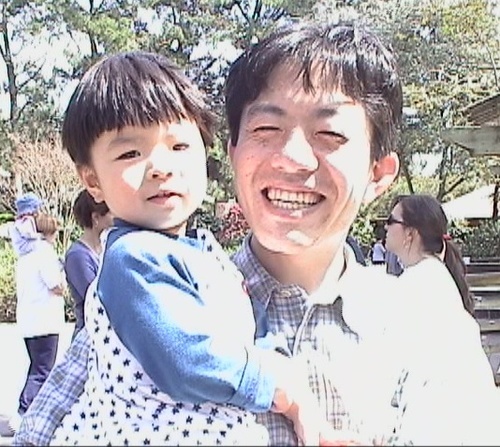結果
| 問題 | No.622 点と三角柱の内外判定 |
| コンテスト | |
| ユーザー |
 tnakao0123 tnakao0123
|
| 提出日時 | 2018-01-04 13:50:00 |
| 言語 | C++11(廃止可能性あり) (gcc 15.2.0 + boost 1.89.0) |
| 結果 |
AC
|
| 実行時間 | 3 ms / 1,500 ms |
| コード長 | 3,086 bytes |
| 記録 | |
| コンパイル時間 | 635 ms |
| コンパイル使用メモリ | 85,440 KB |
| 実行使用メモリ | 5,248 KB |
| 最終ジャッジ日時 | 2024-12-23 03:37:02 |
| 合計ジャッジ時間 | 1,811 ms |
|
ジャッジサーバーID (参考情報) |
judge3 / judge2 |
(要ログイン)
| ファイルパターン | 結果 |
|---|---|
| other | AC * 32 |
コンパイルメッセージ
main.cpp: In function ‘int main()’:
main.cpp:116:10: warning: ignoring return value of ‘int scanf(const char*, ...)’ declared with attribute ‘warn_unused_result’ [-Wunused-result]
116 | scanf("%lf%lf%lf", &ps[i].x, &ps[i].y, &ps[i].z);
| ~~~~~^~~~~~~~~~~~~~~~~~~~~~~~~~~~~~~~~~~~~~~~~~~
ソースコード
/* -*- coding: utf-8 -*-
*
* 622.cc: No.622 点と三角柱の内外判定 - yukicoder
*/
#include<cstdio>
#include<cstdlib>
#include<cstring>
#include<cmath>
#include<iostream>
#include<string>
#include<vector>
#include<map>
#include<set>
#include<stack>
#include<list>
#include<queue>
#include<deque>
#include<algorithm>
#include<numeric>
#include<utility>
#include<complex>
#include<functional>
using namespace std;
/* constant */
/* typedef */
template <typename T>
struct Pt3d {
T x, y, z;
Pt3d() {}
Pt3d(T _x, T _y, T _z) : x(_x), y(_y), z(_z) {}
Pt3d(const Pt3d& pt) : x(pt.x), y(pt.y), z(pt.z) {}
bool operator==(const Pt3d pt) const {
return x == pt.x && y == pt.y && z == pt.z;
}
Pt3d<T> operator+(const Pt3d pt) const {
return Pt3d<T>(x + pt.x, y + pt.y, z + pt.z);
}
Pt3d<T> operator-() const {
return Pt3d<T>(-x, -y, -z);
}
Pt3d<T> operator-(const Pt3d pt) const {
return Pt3d<T>(x - pt.x, y - pt.y, z - pt.z);
}
Pt3d<T> operator*(T t) const {
return Pt3d<T>(x * t, y * t, z * t);
}
Pt3d<T> operator/(T t) const {
return Pt3d<T>(x / t, y / t, z / t);
}
T dot(Pt3d v) const { return x * v.x + y * v.y + z * v.z; }
Pt3d<T> cross(Pt3d v) const {
return Pt3d<T>(y * v.z - z * v.y, z * v.x - x * v.z, x * v.y - y * v.x);
}
Pt3d<T> mid(const Pt3d pt) {
return Pt3d<T>((x + pt.x) / 2, (y + pt.y) / 2, (z + pt.z) / 2);
}
T d2() { return x * x + y * y + z * z; }
double d() { return sqrt(d2()); }
Pt3d<T> rotx(double th) {
double c = cos(th), s = sin(th);
return Pt3d<T>(x, c * y - s * z, s * y + c * z);
}
Pt3d<T> roty(double th) {
double c = cos(th), s = sin(th);
return Pt3d<T>(s * z + c * x, y, c * z - s * x);
}
Pt3d<T> rotz(double th) {
double c = cos(th), s = sin(th);
return Pt3d<T>(c * x - s * y, s * x + c * y, z);
}
Pt3d<T> rotx90() { return Pt3d<T>(x, -z, y); }
Pt3d<T> roty90() { return Pt3d<T>(z, y, -x); }
Pt3d<T> rotz90() { return Pt3d<T>(-y, x, z); }
bool operator<(const Pt3d& pt) const {
return (x < pt.x || (x == pt.x && (y < pt.y || (y == pt.y && z < pt.z))));
}
void print(string format) {
printf(("(" + format + ", " + format + ", " + format + ")\n").c_str(),
x, y, z);
}
void print() { print("%.6lf"); }
};
typedef Pt3d<double> pt;
/* subroutines */
/* global variables */
pt ps[4], nvs[3];
/* subroutines */
/* main */
/*
p = t*nv+q
(p-p0)*nv=(t*nv+q-p0)*nv=0 -> t*(nv*nv)=(p0-q)*nv -> t = (p0-q)*nv/(nv*nv)
*/
int main() {
for (int i = 0; i < 4; i++)
scanf("%lf%lf%lf", &ps[i].x, &ps[i].y, &ps[i].z);
pt &q = ps[3];
pt nv((ps[1] - ps[0]).cross(ps[2] - ps[0]));
double t = (ps[0] - q).dot(nv) / nv.d2();
pt p(nv * t + q);
//p.print();
for (int i = 0; i < 3; i++) {
pt v0(ps[(i + 1) % 3] - ps[i]), v1(p - ps[i]);
nvs[i] = v0.cross(v1);
//nvs[i].print();
}
for (int i = 0; i < 3; i++) {
double d = nvs[i].dot(nvs[(i + 1) % 3]);
//printf("%lf\n", d);
if (d <= 0.0) {
puts("NO");
return 0;
}
}
puts("YES");
return 0;
}
